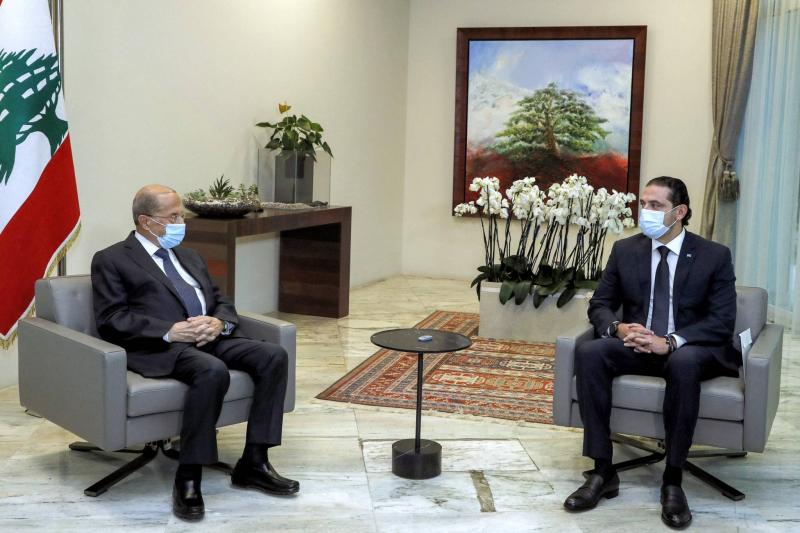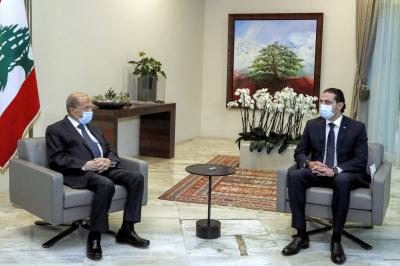Lebanese Prime Minister-designate Saad Hariri presented a government formation to President Michel Aoun on Wednesday, consisting of 24 ministers, stating that he awaits a response on Thursday to end nearly nine months of stagnation and stop the economic collapse. Over the past months, the veteran Sunni politician Hariri proposed several initiatives to Aoun, an ally of the Iran-backed Hezbollah group, but the two have been unable to agree on a government formation.
After their meeting on Wednesday, Hariri, who has been at odds with Aoun regarding minister appointments since his designation in October, told reporters, "Now the time for truth has come." Aoun stated in a statement that he would study the proposal, which included "new names and a different distribution of portfolios and sects than what was previously agreed upon."
The government proposal presented by Hariri consists of 24 specialized ministers, aligning with the French initiative aimed at establishing a government capable of enacting reforms that could unlock much-needed foreign aid to rescue the country. Previous proposals also included ministers who are specialists from different sects. However, it was not immediately clear what the differences were between the new formation and previous ones.
Nonetheless, Wednesday's proposal is viewed as Hariri’s last attempt, as he was expected to withdraw from efforts to form a government following a trip to Egypt, which has long supported him. The Saudi-owned Al Hadath channel earlier reported that Cairo urged him not to resign. Sources in Cairo stated that Egypt promised economic and political support for forming a new government, and a delegation would head to Beirut soon.
If the government is rejected and Hariri resigns, it would leave the country searching for another Sunni politician willing to take his place. Under the power-sharing system, Lebanon's president must be a Maronite Christian and the prime minister a Sunni Muslim. With parliamentary elections expected in less than a year, few Sunni figures are willing to take on this responsibility.
Lebanon has been without a government since the resignation of Hassan Diab's cabinet following the August 4 explosion at the Beirut port, which killed more than 200 people, injured thousands, and destroyed entire neighborhoods in the heart of the capital. Lebanon is facing an economic collapse described by the World Bank as one of the worst recessions in contemporary history, which has pushed more than half the population into poverty, while the currency has lost more than 90% of its value over nearly two years, exacerbated by the ongoing political crisis.
Hariri said, "For me, this government can lift the country and start working seriously to stop the collapse, and I hope to receive a response from His Excellency the President tomorrow to proceed accordingly."




